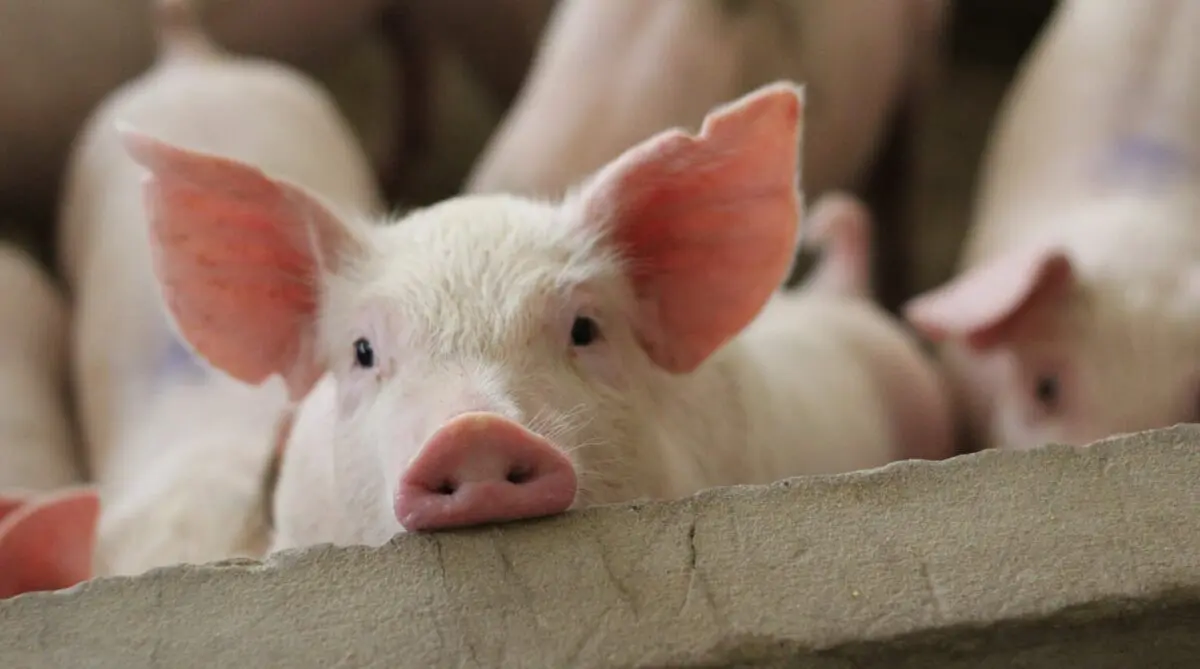When infected with the novel coronavirus, pig cells undergo a kind of strategic suicide called apoptosis, which kills the infected cells and stops them from spreading the virus.
SARS-CoV-2, the novel coronavirus that causes COVID-19, is itself considered a zoonotic disease — that is, it comes from animals. With this, many agree, although exactly how he made the “leap” to humans remains a matter of debate.
Since it is a zoonotic disease, it is not surprising that many animal species can also become infected with the virus. In particular, cats, dogs, ferrets, minks, deer, tigers and hamsters. In addition, it is known that animals can contract the disease from humans. From the very beginning of the pandemic, scientists have known that pigs can also become infected with the coronavirus – however, they never get sick and do not become contagious.
For scientists, this was an exciting discovery. After all, if pigs can contract the coronavirus but not get sick, then their neutralizing antibodies could perhaps be used as a model to study the immunogenicity of the virus.
Why are pigs so resistant to the new coronavirus?
To find out, the scientists injected samples of the virus into cell cultures derived from the respiratory epithelium of humans and pigs. While the human cell culture worked as expected, the pig cell culture did not. In fact, in response to infection with SARS-CoV-2, pig cells simply died – the nuclei of their cells were torn into fragments.
This type of controlled cell death is called apoptosis, and although the term “cell death” may sound intimidating, it actually means that infected cells do not spread the infection to other cells, but simply die, stopping the infection in its path, causing minimal tissue damage.
This phenomenon is not unique to pigs. It is known that similar processes occur in humans, but pig cells do this 100 times more actively.
Instead of apoptosis, human cells are much more likely to undergo a process known as necrosis. This is another form of cell death, but unlike apoptosis, it is much less controllable. When a cell undergoes necrosis, it releases its contents into the environment. This leads to a very strong hyperimmune response.
In other words, necrosis is bad, while apoptosis can quickly clear an infection without triggering an overreaction of the immune system.
Why are pigs better at apoptosis than humans?
Study author Luis Jiménez-Lirola, an assistant professor of veterinary diagnostics and food animal medicine at Iowa State University, has a theory.
“We don’t want to draw exaggerated conclusions, but this response is probably something inherent in the immune system of pigs, which is innate, not acquired,” the scientist said.
According to him, further research in pigs may find solutions in the field of therapeutic treatment of people with coronavirus – drugs will trigger apoptosis, avoiding severe symptoms and promoting recovery.
To do this, the team behind the study will work to identify all the different genes that are activated in the process. Since coronavirus infections in animals can lead to the potential development of new variants, finding ways to control this virus in all types of infected species is a top priority in the fight against the COVID-19 pandemic.







